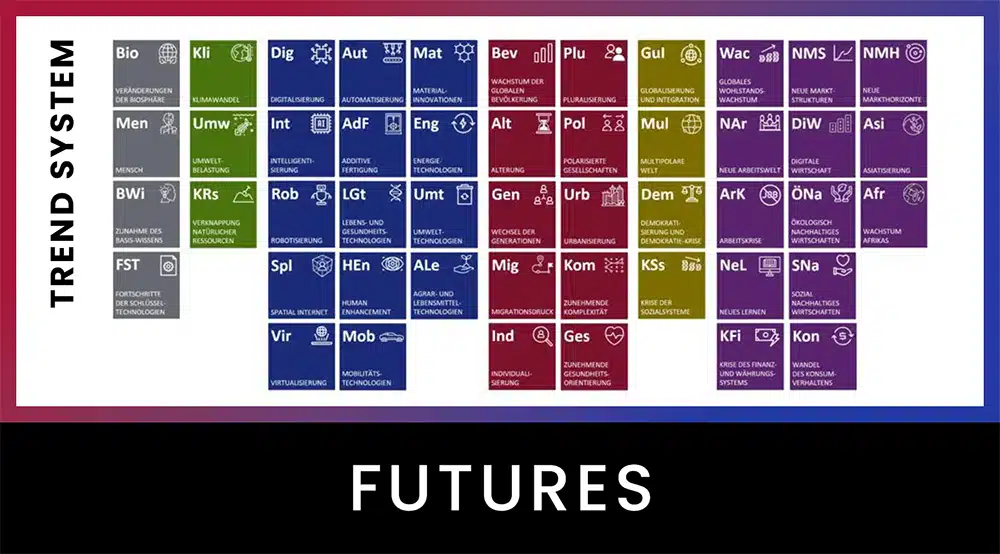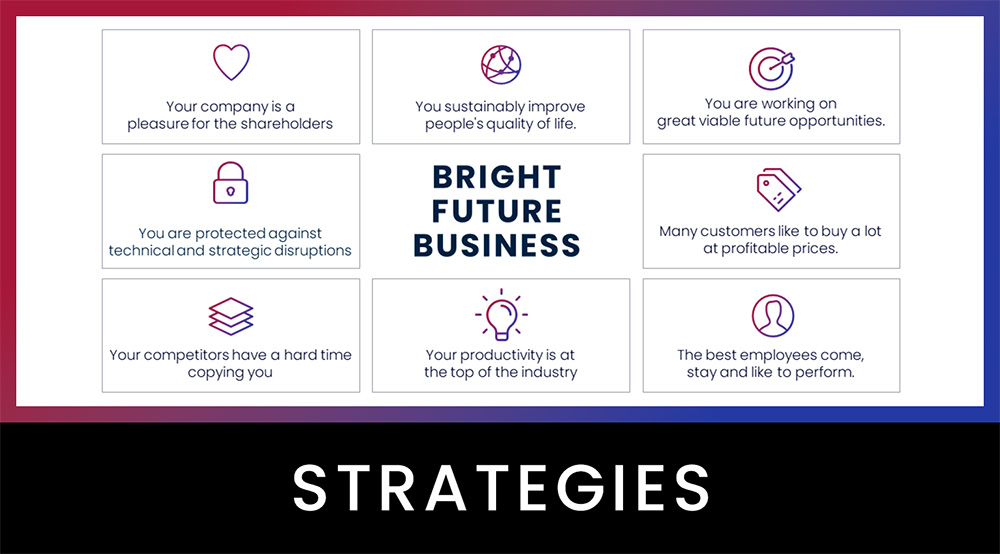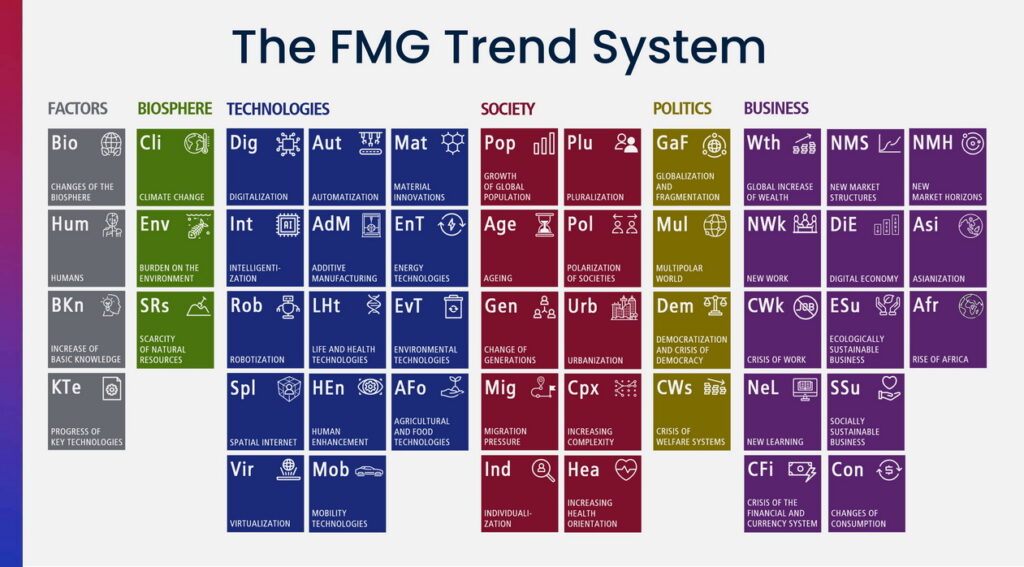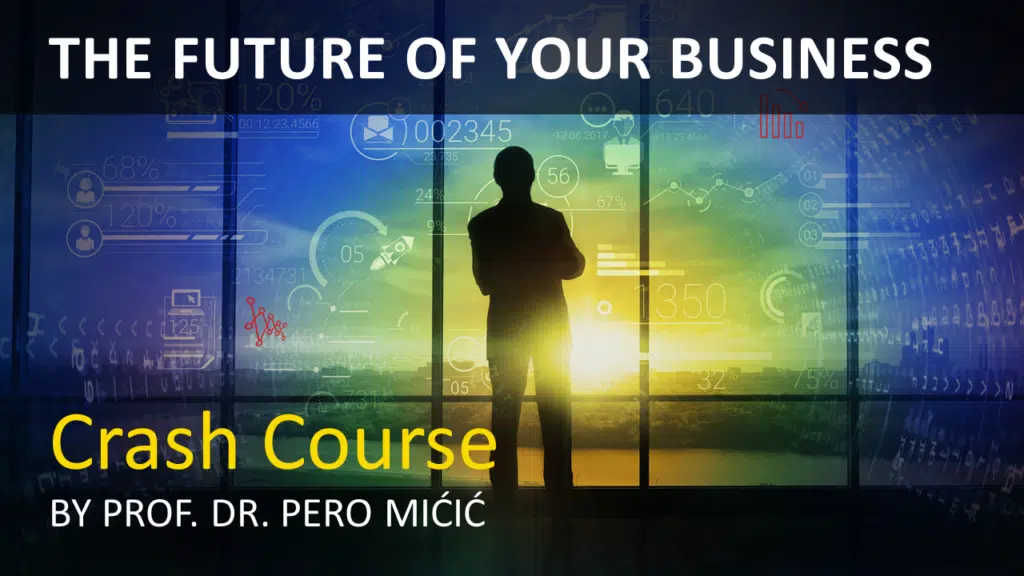Dr. Pero Mićić
Making humanity a multiplanetary species. That is SpaceX’s mission. Is it just a giant waste of money and resources? And ultra-rich men who don’t know what to do with all their money? Or is it an investment in the survival of humanity? Here is my answer.
The mission of SpaceX
As a reminder, a well-crafted mission that guides, aligns and motivates your team, that actually works in your day-to-day business, is the central element of any company’s strategy.
I consider SpaceX’s mission to be the greatest and most significant mission any company has ever had. Mankind’s step from a monoplanetary civilization to a multiplanetary one is as great as man’s evolution into Homo Sapiens.
Counterarguments
Sceptics and cynics shout “To Mars? Really?”. We have huge problems on earth. We can’t even get a grip on them. And then we should spend a lot of money and resources to fly to Mars? Really? And isn’t it enough that we are already exploiting the earth, do we also have to overexploit in space? They accuse the proponents of space travel of escapism. The escape from the real problems on earth in the here and now. We’ve screwed up here, and now we’re looking to space to avoid having to deal with the world’s problems.
Yes, Blue Origin by Jeff Bezos and Virgin Galactic by Richard Branson with their space tourism seem like leisure adventures of ultra rich men. After all, you could use your money to alleviate the poverty of millions of people. Yes, instead of investing in space tourism, that would absolutely be the more ethical and beneficial use of their wealth. But this isn’t about Bezos and Branson for me. It’s about SpaceX’s mission. To make humanity multiplanetary.
So. to Mars? What’s the point, anyway?
Arguments for SpaceX’s mission
Alternative necessary
At some point, whether in 20, 100, 1000, or a million years from now, humanity will need an alternative or supplement for Earth more urgently than anything else.
Toby Ord of Oxford University warns in his book The Precipice that there is about a seventeen percent chance humanity could be wiped out before the end of this century.
By what? First of all, by threats from outer space.
I know no one wants to hear this now, but it’s real: It’s quite likely that Earth will be hit by a large asteroid again. Like 65 million years ago, when all life on Earth was drastically changed in one swoop. You know, the dinosaurs and stuff. If that happens again, Earth could become uninhabitable for humans. A gamma-ray burst would destroy our protective atmosphere and change the climate rapidly and drastically. Agriculture would be severely harmed, famines and wars would be the result. A strong solar storm and from it an EMP, an electromagnetic pulse, could switch off and even permanently destroy all electronics on earth. If nothing of our technology works any more, the society will become hell.
Earth itself is not always kind to us either. When one of the dormant supervolcanoes erupts, in Yellowstone National Park, Taupo in New Zealand, and even Campi Flegrei in Italy, we’re in for it, too. The Toba volcano in Sumatra last erupted 74,000 years ago. There was a year-long global volcanic winter that would destroy our food base today. An extremely deadly and highly contagious virus could kill most of humanity. The Ebola virus or the Marburg virus have death rates as high as 90%. There are thought to be hundreds of viruses dangerous to humans. Plus mutations. And many of them are highly contagious. What we went through from 2020 to 2022 with 6-7 million deaths with a way less deadly virus was tough, but it can get much worse. With many of these threats, we don’t have the slightest chance in the foreseeable future of averting them or protecting ourselves effectively.
In the short term, it’s all unlikely, but in the long term, it’s all but certain that one or more of these events will affect the Earth and humanity.
Then there are also the planetary risks and threats of our own making. A nuclear world war, or an out of control general artificial intelligence could bring us as humanity to a horrific end far sooner than people think. And let’s not forget: Climate change. The climate is changing even without us, but we have made a decisive impact by burning unimaginable amounts of coal, gas and oil. And still do. 80% of the earth’s energy is still derived from fossil fuels. I am confident that climate change will not lead to the end of mankind. But we just can’t be sure that we will find solutions and implement them in time.
So, we are exposed to several global cluster risks because we only have this one planet. Nothing less than the very existence of humanity is at stake. One rule in future-management is: flexibility replaces foresight. We must learn to hedge against unlikely but potentially devastating events. This applies in private life, in business, as well as to humanity as a whole.
Progress for more quality of life
Space travel and research will not just provide us with an alternative for Earth. It will also make our lives here on Earth way better.
As everyone knows, space projects have virtually incidentally produced countless discoveries, inventions, and innovations, and have contributed greatly to improving our quality of life. In energy, fuel cells and solar cells became far more efficient and rechargeable batteries more energy-dense. In nutrition, water purification systems have been greatly advanced. Bone densitometry, the magnetic resonance tomograph or the infrared thermometer only became so good through space research. The network of satellites has connected mankind. Our understanding of the climate and necessary strategies to protect it would be impossible without them. And in the near future, everyone in the farthest corner of the globe will be able to access the Internet with a broadband connection. This will lift hundreds of millions of people out of poverty and increase prosperity and quality of life and participation for everyone worldwide.
Yes, we’ve managed all that in recent decades without trips to the moon or Mars. But it is precisely these new horizons and endeavors that will additionally promote progress and problem solving.
Earth’s resources
Earth’s resources are inherently limited. Although the Earth could potentially provide food and quality of life for well over ten billion people if we would only behave in a more future-intelligent manner. The Moon, Mars, and near-Earth asteroids offer immeasurable quantities of raw materials such as iron, cobalt, nickel, aluminum, magnesium, titanium, silver, and gold. Yes, asteroid mining is literally still a long way off, physically and temporally. It will take us decades to get there. But if we don’t start, we will never get there.
Investment and costs
The cost of carrying one kilogram of material and equipment into space has dropped tremendously. With a space shuttle, the cost used to be over $50,000 per kilogram. With the Falcon Heavy by SpaceX, it is now only $1,400. With the Starship, the cost will drop further, to less than 100 USD. From 50,000 USD to 1,400 and soon only 100!
With government space agencies, on the other hand, costs have always known only one direction. Steeply upward. Because it is tax money. This cost reduction alone is a huge contribution to the welfare of mankind.
Why have costs dropped so much? Precisely because of SpaceX’s innovations. They simply asked themselves: If we fly from London to New York, we don’t throw the plane away afterwards. But why do we do that with rockets? Why don’t we reuse them? The ESA found this idea absurd and made fun of it at first. Until SpaceX perfected the reuse of launch vehicles (show video of landing). Because of its much lower cost, SpaceX captured two-thirds of the commercial launch market share within ten years. In 2022, SpaceX launched more satellites into space than all other players combined. All this against huge government organizations in the U.S., China, Russia and Europe.
Overall, the cost of, or rather investment in, spaceflight is relatively small. Globally, just about 0.5% of the world’s GDP is invested in space. More is spent on advertising. Over two three levels, that is many millions of jobs, from which many millions of families derive their income. Over 80% of all launches are done by private companies. If it wasn’t profitable for the companies that fund space projects, they wouldn’t spend the money. And government agencies wouldn’t either. So the money isn’t gone, it’s investments that are already increasing prosperity and quality of life. Especially through the technological innovations. The money hasn’t been taken away from anyone. Space is self-financing, for the most part. At least in the long run. And unfortunately, the causes of poverty and hunger that still exist on Earth are not so much a lack of money as a lack of logic, foresight, strategy and logistics. But that’s a different story.
Space travel inspires
I want to make one more argument. In the 1960s and 70s, and even before that, space travel inspired people. Then it fell asleep. Today, who is by far the most popular employer in the U.S. among engineers? That’s right, SpaceX. There’s one main reason for that: space travel inspires people of all ages. Most importantly, it gives younger generations positive perspectives and confidence. Or simply put, it’s cool and exciting to be involved in the next era of humanity. Many young people in particular want to dedicate their professional lives to a task that does something good for the future of humanity. A great mission and vision sets a standard that can only be achieved with a lot of confidence, curiosity, innovation and entrepreneurial spirit. All of this is true worldwide. Spaceflight has also fostered international cooperation in the past, even from political opponents.
And now?
You see, it is completely incomprehensible to me how anyone can be fundamentally opposed to spaceflight. And against the great ambition of the journey to Mars and a base there. It is precisely this great challenge that in effect makes humanity safer and more resilient in the long term. It ensures our survival and makes us more successful as a human race. And it opens up unimaginable advantages for the quality of life on Earth. When our descendants one day look back from the 22nd or 23rd century, they will see the first decades of the 21st century as the starting point of a great development for mankind.
The mostly polemic arguments against the mission of a multi-planetary humanity is for me again such an example of the notorious short-sightedness of man. Our attachment to the here and now, our often short-sighted way of thinking makes us dangerously blind to the future. And that has led to major problems time and again. Our harmful fossil fuel based energy generation with huge emissions, climate change, financial and social systems in crisis, political conflicts. Always one of the causes can be found in the fact that we endangered or even had a good future so that we didn’t have to try too hard in the then here and now.
What can you take away from this for your profession and business? I, with my companies, won’t be able to accomplish a mission as big as SpaceX. You probably won’t either. But if we, you and I, can make even a millionth of that happen with our companies, we too will make a lasting improvement in the quality of life for humanity. Then you create a Bright Future Business. Then you attract excellent people who want to join you in fulfilling your mission and realizing your vision.
Therefore, dare to develop a challenging mission and vision and make it effective in your daily business.
Many people today, including your employees, have great fears about the future. Partly rightly so. And the only thing that alleviates future fears is future joy.
If you want to develop a motivating, but realistic and intelligent future strategy for your company, we will be happy to show you how to do it. We have been developing and implementing future strategies for over years.
Just follow these links:
► The Future Strategy Program for SMEs
► Free video crash course THE FUTURE OF YOUR BUSINESS
► BUSINESS WARGAMING for robust business and future opportunities
► KEYNOTES by Pero Mićić for your employees and customers
Have a bright future!


































